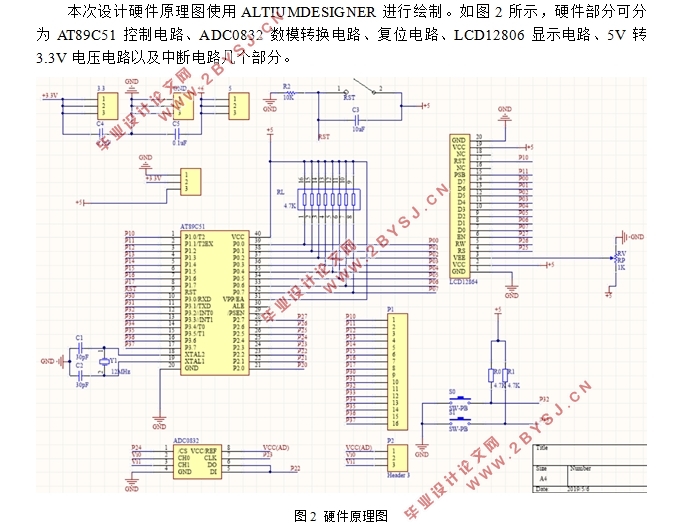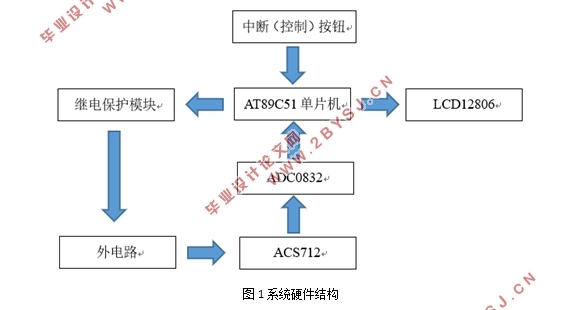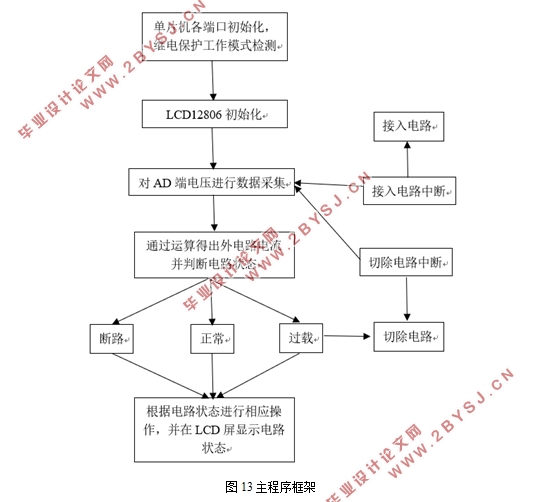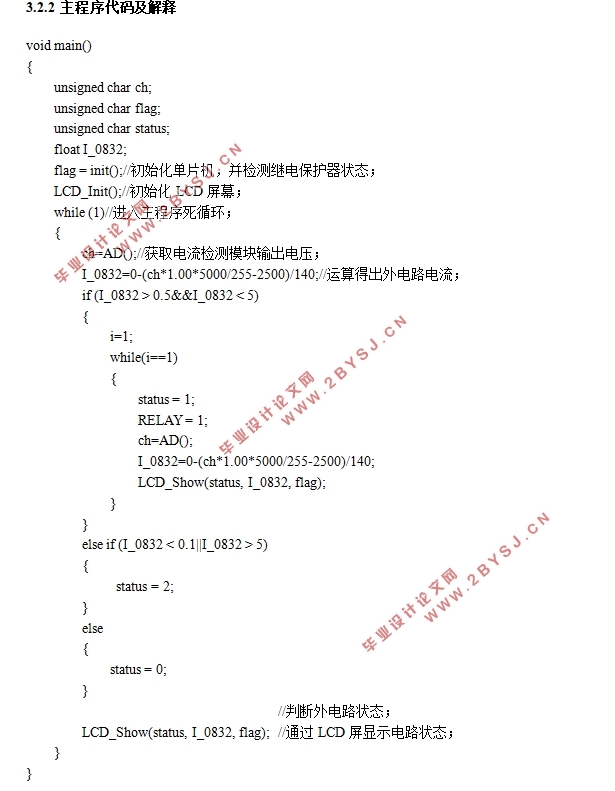基于单片机的电路电流检测及保护设计
无需注册登录,支付后按照提示操作即可获取该资料.
基于单片机的电路电流检测及保护设计(论文11000字)
摘要:在当代,电能是经济发展,社会生活的基础。所有的电子科技设备都离不开电能的支持,电能显得格外重要。随着经济与科技的快速发展,家庭用电设备数目与种类变得越来越多。与此同时,用电安全问题也变成让人更加关注的问题。当前的家庭电路保护装置大多数为断路器,该断路器可实现电路故障时的快速切除电路,保护用电设备,线路及人员安全。但却不能判断出家庭电路的故障类型,不能为维修带来很好的帮助,增加了维修人员的工作量。此设计的目的就是为了设计出一款可以检测出线路故障类型的家庭继电保护装置。为维修提供方便。且电路如果过载也可提醒用户切除部分负载,减少维修人员工作量。此设计亦可用于其他的电路保护中。
关键词:继电保护;电流检测;51单片机;液晶显示;数字模拟转换
A circuit detection and protection design based on MCS 51
Abstract:At present, electricity is the foundation of economic development and social life.Most of the technological devices are related to electricity, which make electricity become more and more important.With the economy and technologydevelopment at high speed, the number and types of household electrical equipment become more and more.At the same time, electric safety problem becomes more and more prominent.Most current circuit protection devices are circuit breakers, which can quickly cut out the circuit in case of circuit failure and protect the safety of electrical equipment, lines.However, the type of circuit fault could not be determined, which could not bring good help to maintenance and increase the workload of maintenance personnel.The purpose of this design is to design a relay protection device that can detect the type of circuitfault.If circuit overload,it can also remind users to cut off part of the load, reduce the workload of maintenance personnel. This design can also be used in other circuit protection.
Key words:Relay protection; Current detection; MCS 51; LCD; AD conversion




目录
1 绪论 1
1.1设计背景 1
1.2方案介绍 2
2 硬件设计 2
2.1硬件框架 2
2.2 硬件介绍 3
2.2.1 硬件原理图 3
2.2.2 AT89C51 4
2.2.3ADC0832 5
2.2.4ACS712 6
2.2.5LCD12806 7
2.2.6 中断开关 8
2.2.7 继电保护及外电路 8
2.3 PCB封装及加工 9
3 软件设计 10
3.1 软件环境与工程框架 10
3.2 主程序 11
3.2.1 主程序框架 11
3.2.2 主程序代码及解释 12
3.3 AD转换输入程序 13
3.3.1 AD转换方式及时序 13
3.4 LCD显示程序 15
3.4.1 LCD显示程序框架 15
3.4.2 LCD显示程序代码及解释 15
3.5 按键中断程序 15
3.5.1 中断程序框架 15
3.5.2 中断程序代码及解释 16
3.6 单片机初始化程序 16
3.6.1 初始化程序流程 16
3.6.2 初始化程序代码及解释 16
4 电路焊接及调试 17
4.1 电路焊接 17
4.2 电路调试 18
5 总结 22
参考文献 22
致谢 24
